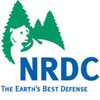
Reuters/China Daily
Why do some of the largest environmental organizations still invest in fossil fuels? As outlined in my new piece, Time for Big Green to go Fossil Free, organizations such as The Nature Conservancy and the Wildlife Conservation Society aren't taking the simple step of divesting their large endowments and publicly traded investments from energy corporations. Below is a cheat sheet (not comprehensive) for how much money big green groups are investing and for who is—and who isn't—getting their financial house in order.
 Conservation International
Conservation International
Endowment: $25.8 million**
Investments in publicly traded securities: $22 million
What we know:
-Does not have any environmental screens on investments
-”We do not have any explicit policy prohibiting investment in energy companies." —Patricia Yakabe Malentaqui, Spokesperson
-Has relationships with fossil fuel companies including: BP, Chevron, ExxonMobil and Shell
Considering divestment?
-No comment
 Environmental Defense Fund
Environmental Defense Fund
Endowment: $5.6 million
Investments in publicly traded securities: $34.6 million
What we know:
-Did not disclose status of mixed assets, claiming information is “not public”
-No direct investments in fossil fuel companies: ”EDF does not own any equities or corporate bonds of fossil fuel companies.” —Tony Kreindler, Spokesperson
-Working with Shell, Chevron, and other energy companies to promote "sustainable" fracking
Considering divestment?
-”No, since we don’t own any equities or corporate bonds of fossil fuel companies.” —Tony Kreindler, Spokesperson***
 National Wildlife Federation Endowment
National Wildlife Federation Endowment
Endowment: $1.5 million
Investments in publicly traded securities: $25.7 million
What we know:
-Once used a “green screen” with environmentally ranked portfolios
-Now asks “our investment managers to look for best in class companies who were implementing conservation, environmental and sustainable practices.” —Aileo Weinmann, Spokesperson
-Does not have a policy barring investment in fossil fuel companies
Considering divestment?
-No comment
Popular
"swipe left below to view more authors"Swipe → The Nature Conservancy
The Nature Conservancy
Endowment: $950 million
Investments in publicly traded securities: $1.4 billion
What we know:
-Refused to answer any questions or to provide any details about its holdings or policies
-Financial statements reveal it has at least $22.8 million invested in the energy
sector
-Has relationships with fossil fuel companies including: BP, Chevron, ExxonMobil and Shell
Considering divestment?
-No comment
 Natural Resources Defense Council
Natural Resources Defense Council
Endowment: $118 million
Investments in publicly traded securities: $117 million
What we know:
-“NRDC has no direct investments in sectors likely to be affected by NRDC advocacy. We specifically screen out extractive industries, fossil fuels, and other areas of the energy sector.”
-”NRDC’s Investment Committee pursues green investment strategies as they arise, considering such factors as risk, return, currency exposure, interest rates, diversification, and fee structures.” —NRDC accounting team
-Confirms that NRDC still holds stocks in mutual funds and mixed assets that do not screen for fossil fuels
Considering divestment?
"This is certainly one of many ideas that merit consideration as we develop the most effective strategies for NRDC’s fight against dirty energy." —NRDC accounting team
 Ocean Conservancy
Ocean Conservancy
Endowment: $2 million
Investments in publicly traded securities: $14.4 million
What we know:
-"Ocean Conservancy does not have an environmental or social screen investment policy." —David Willett, Director of Marketing and Communications
-FY 2012 audited financial statement lists $518,732 invested in "Energy", $156,032 in "Utilities", $132,313 in "Materials"
Considering divestment?
-”We are not currently engaged in any divestment campaigns, our work tends to be focused on governmental policy and scientific research.” —David Willett, Director of Marketing and Communications
 Sierra Club
Sierra Club
Endowment: $18.1 million
Investments in publicly traded securities: $15 million
What we know:
-“The Sierra Club…has a policy of not investing in nor accepting donations from companies that profit from the extraction of natural resources, including mining, timber, oil, coal and gas.” —Michael Brune, Executive Director
Considering divestment?
-Divestment policy in place
 The Sierra Club Foundation
The Sierra Club Foundation
Endowment: $20.5 million
Investments in publicly traded securities: $61.7 million
What we know:
-Uses a variety of environmental and social screens
– “TSCF does not currently have a policy against investing in fossil fuel companies.”
-TSCF is “currently reviewing energy holdings to make sure we are carrying the minimum amount necessary for shareholder action, and developing a policy to restrict investment in fossil fuels.” —Peter Martin, Executive Director
Considering divestment?
-TSCF “has begun a process to develop a policy to divest from fossil fuels. That policy has not yet been finalized.” —Michael Brune, Sierra Club Executive Director
 Union of Concerned Scientists
Union of Concerned Scientists
Endowment: N/A
Investments in publicly traded securities: $30 million (Note: This is the current value of UCS' “Board reserve" fund, which includes, but may not all be invested in, publicly traded securities)
What we know:
-Does not appear to screen managed fund investments for fossil fuels
-On $30 million “Board reserve”: “The reserve is invested in a variety of managed funds, and we are not directly invested with individual companies.” —Cheryl Schaffer, Director of Finance & Administration
-From UCS’ investment policy: "In its choice of investments and of investment managers the Finance Committee will consider the broad environmental mission of UCS seeking to balance the need for strong financial performance with sustainable and responsible investment choices. The Finance Committee will attempt to seek investment managers that apply high ethical standards to their work."
Considering divestment?
-"UCS has not yet discussed joining the divestment campaign." —Cheryl Schaffer, Director of Finance & Administration
 Wildlife Conservation Society
Wildlife Conservation Society
Endowment: $377 million
Investments in publicly traded securities: $36.3 million
What we know:
-Refused to answer any questions or to provide any details about its holdings or policies
-Has a subcategory of investments that includes “energy, mining, oil drilling, and agricultural businesses.”
-Partnered with Hess oil company
Considering divestment?
-No comment
 Wilderness Society
Wilderness Society
Endowment: $22.3 million
Investments in publicly traded securities: $28.3 million
What we know:
-Screens direct and mixed-asset investments for extractive industries: "The Wilderness Society directly instructs its investment managers to avoid making investments in companies that extract resources from our public lands and waters to ensure that we do not invest in industries such as oil, coal, gas and timber." —Kitty Thomas, Spokesperson
Considering divestment?
-Divestment policy in place
 Woods Hole Research Center
Woods Hole Research Center
Endowment: $4.2 million
Investments in publicly traded securities: $4.8 million
What we know:
-Investments are managed in accord with “social guidelines” for investing. “Those guidelines do not necessarily exclude all investments in all fossil fuel companies, but, in practice, none of the major multinational coal or oil companies pass their filter and their scoring system.”
-”Firms must fall in the top quartile of their ranking process in order to be considered for investment. There are some small companies with interests in fossil fuel industries that do.” —Eric A. Davidson, WHRC President and Senior Scientist
Considering divestment?
-"We have recently learned that [our investment management firm] Trillium is offering its clients a new option of a fossil fuel free investment portfolio. We are beginning to study that option, but are just in the early stages of that analysis." —Eric A. Davidson, WHRC President and Senior Scientist
 World Resources Institute
World Resources Institute
Endowment: $38 million
Investments in publicly traded securities: $13 million
What we know:
-Refused to answer questions about whether or not it is invested in fossil fuels
-According to WRI investment policy: “In line with our mission, WRI is obligated to include [Environmental, Social, Governance] investment options when selecting new asset managers. We do not target a given percent of our investment allocation to ESG."
-According to WRI investment policy: “Our investments support our mission and should be aligned with our mission and values such that we are not investing in companies/instruments that are less than fully transparent or insensitive to environmental or developmental issues.”
-Has “strategic relationship” with Shell Foundation, among other corporate relationships
Considering divestment?
-No comment
 World Wildlife Fund
World Wildlife Fund
Endowment: $195 million
Investments in publicly traded securities: $75 million
What we know:
-Refused to answer questions about whether it applies environmental screens to its mixed-asset funds
-"We don't have direct investments, so we do not hold shares of any companies directly. Our investments are primarily through diversified funds." —Ian Morrison, Spokesperson
Considering divestment?
-”We are interested in the issue you've raised and are actively engaged in our own internal discussions in this area.” — Ian Morrison, Spokesperson
*This data only covers green groups with very large investment portfolios and is not comprehensive
**Endowment/investment numbers confirmed by each organization or taken from most recent available IRS Form 990s or audited financial statements
***Under US law, nonprofits are not required to divulge their holdings in the stock market. Every group mentioned was asked to provide that information; no group did. And for this reason, we are unable to independently verify that any group is fully divested.


